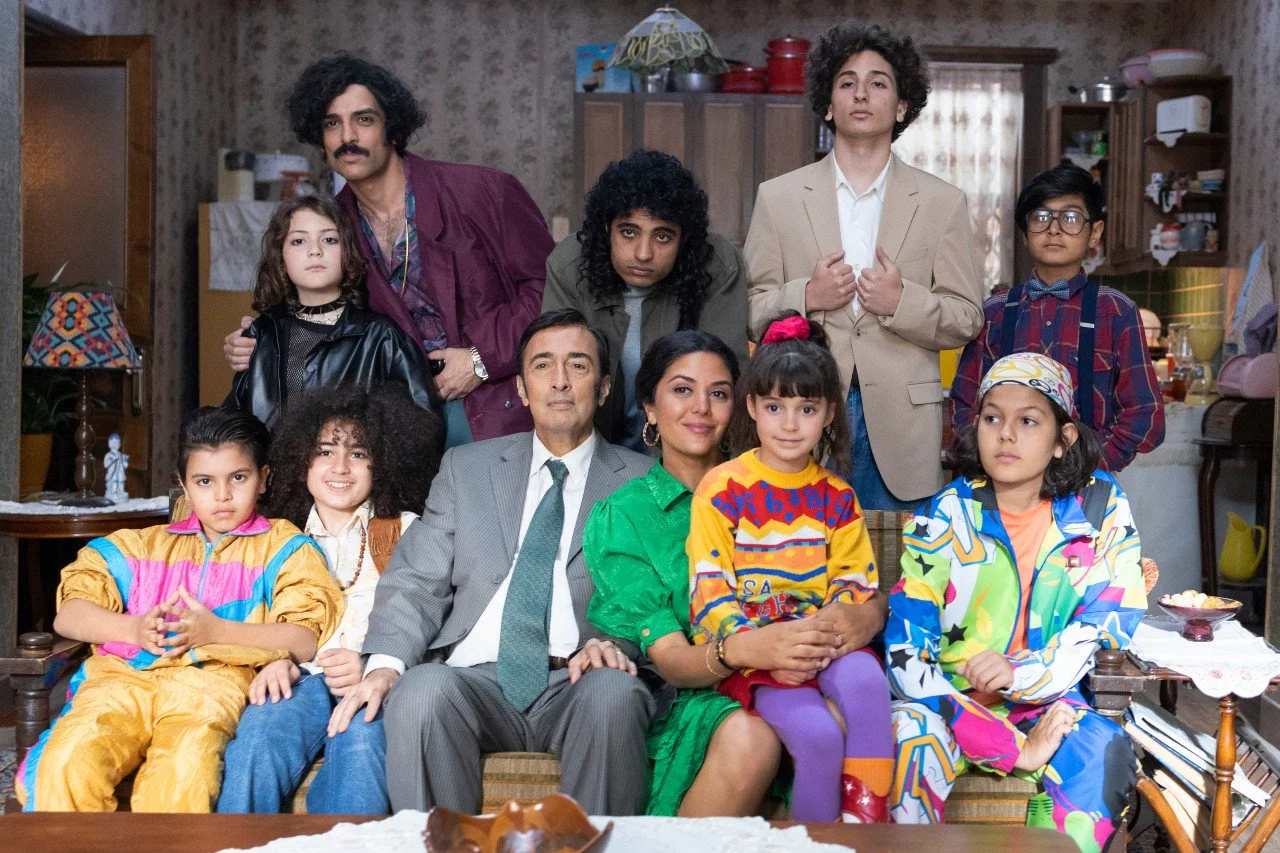The Persian Version: Nifty Bits Boost Cross-Cultural Mother-Daughter Conflict
By Kim Hughes
Rating: B
There is a lovely kookiness to The Persian Version which elevates an essentially straight-up mother-daughter conflict story with myriad snappy visuals and storytelling devices before settling into its main narrative trajectory, advancing the idea that we are all just doing the best we can with whatever tools we have.
The film rests with firecracker Leila (Layla Mohammadi), the only daughter among eight sons belonging to an Iranian American family who emigrated to the U.S. during the Iranian brain drain, when doctors and other skilled professionals were needed to offset lingering wartime shortages in the rank-and-file.
The film opens in New York with Leila attending a costume party wearing a “burk-ini,” essentially a bikini with a niqab. It’s an on-the-nose reference to what Leila later describes in voice-over as her perennial outsider status. She’s too Persian to fully blend in with her American mates, and too American to convincingly pass for Persian in post-Revolutionary Iran where, in the 80s as a child, Leila and her mother Shirin (Niousha Noor) smuggle in banned pop music as they visit family.
Indeed, an early singing-dancing set-piece enlivened by animation (and, uh, Cyndi Lauper) recalls Mama Mia!, though the film quickly hustles back to the present day before traveling even further back in time.
At the above-mentioned costume party, Leila has a quickie with a British actor who arrives in costume (Tom Byrne) and winds up pregnant, a surprising development for a self-identified lesbian. But it’s yet another reason Leila and the strong-willed Shirin clash: Leila’s choice of romantic partners, her ambitions to be a screenwriter, and her refusal to adhere to any traditions mark her out as a rebel in family determined to fit in.
One day, as the family flanks Leila’s dad Ali Reza (Bijan Daneshmand) who is in hospital awaiting a heart transplant, Leila is left behind to care for her grandmother (Bella Warda), who lets slip word of a closely guarded family secret.
That zips the film back to 1960s-era Iran when Leila’s teenage mother wedded her older, physician father, and accompanied him to a remote village where he became the town doctor. There, life unfolded in unexpected ways that shaped Shirin into who she is today. It’s the first of two shapeshifting crises Shirin must navigate in the film.
Writer-director Maryam Keshavarz’s semi-autobiographical dramedy — we see her with her own family in the closing credits — won both the Audience Award and the Waldo Salt Screenwriting Award at Sundance earlier this year. Hers is an inventive film that festively garlands its themes of filial and cross-cultural conflict and sexual ambiguity with pop culture ephemera and fourth wall breaks.
What might have been distracting is, mostly, charming and enhanced by a suitably breezy performance by Mohammadi as Leila, who bears the assimilation struggles unique to first-generation children with an effervescent mix of grit, humour, and sass.
The Persian Version. Written and directed by Maryam Keshavarz. Starring Layla Mohammadi and Niousha Noor. Opens in theatres October 20 in Toronto (Varsity & Empress Walk), Vancouver (Fifth Avenue) and Montreal. Opening in other cities throughout the fall.



